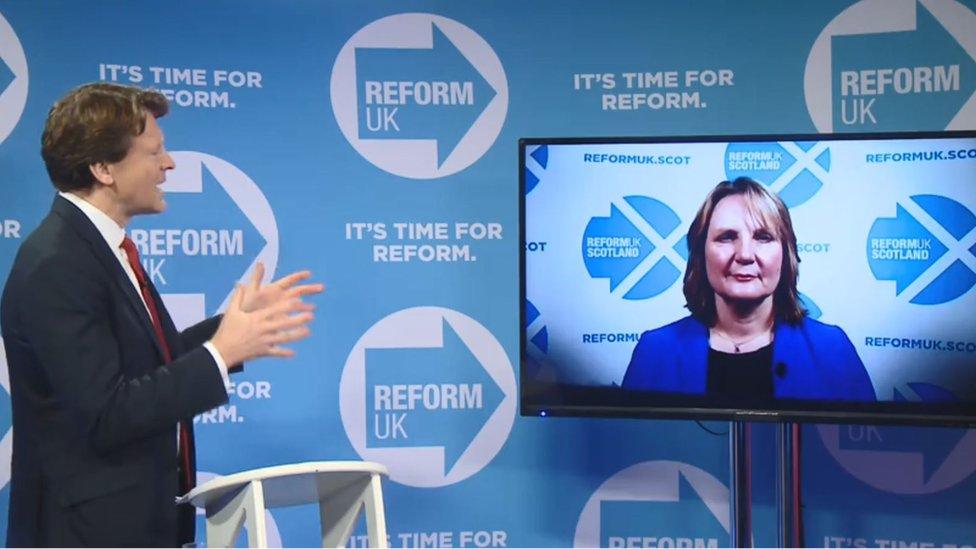Former Tory MSP to lead Scots wing of rebranded Brexit Party
- Published

Richard Tice introduced Michelle Ballantyne as Reform UK Scotland's leader in a virtual event
Former Conservative MSP Michelle Ballantyne is to lead the Scottish wing of Reform UK - the party set up as a rebrand of the Brexit Party.
Ms Ballantyne currently sits as an independent MSP for South Scotland, having quit the Tories in November.
The "new" party is to put up candidates for the Holyrood elections in May and develop its own manifesto.
Ms Ballantyne said it would be pro-UK, pro-Brexit and in favour of low taxes and encouraging entrepreneurs.
The Brexit Party formally changed its name to Reform UK earlier in January after winning approval from the Electoral Commission, but is still led by Nigel Farage.
Chairman Richard Tice said the Scottish party would champion "grown-up debate" about reforming politics and devolving powers from Holyrood to local councils.
Ms Ballantyne - who became an MSP in 2017 via the regional list system - was a candidate for the Scottish Conservative leadership in February 2020, but ultimately lost out to Jackson Carlaw and left the party citing policy differences in November.
She said the new party would "make the positive case for the union", but said she would "not spend hours and hours talking about the constitutional arguments", saying this should be kept for "when the country is back on its feet".
She said: "Unionists and nationalists can and must come together now for the shared goal of rebuilding Scotland.
"Reform UK Scotland will champion personal choice, community response and local networks. Our policies will reflect these values and respect the basic rights of freedom of thought, speech and worship."
The party will contest the regional lists at May's Holyrood election, although Mr Farage has voiced doubts about whether the vote will go ahead due to the pandemic.
The Brexit Party placed second in the European Parliament elections in Scotland in 2019, but secured just 0.5% of the vote in the Westminster election later that year while fielding candidates in 15 out of 59 seats north of the border.
The party's name change was contested by the non-partisan think tank Reform, who said the Electoral Commission's decision to allow the move was "incredibly disappointing".